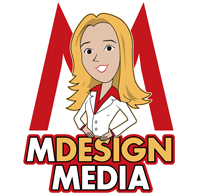The vast majority (more than 85%) of everything that happens on the Internet starts from a search engine. Any business that has a website and has a target market that uses the Internet can benefit from an online marketing plan so that it can be sure to get in the top couple of pages of the search engines. There area variety of ways your can achieve this goal and I thought I’d share a few ideas for you to consider as you build a new site or update your existing site.
SEM (Search Engine Marketing) covers all types of marketing involving a search engine. There are primarily two main areas – search engine optimization (SEO) and pay per click (PPC). PPC is a very powerful marketing channel that allows businesses to advertise on a search engine by bidding on specific keywords that when searched will trigger your ad to show. This was once a very straight forward process – but as with most things involving search engines has become far more complex.
 SEO (Search Engine Optimization) is a marketing discipline that works with companies to help them achieve high rankings in the search engines. This is done by looking at the various attributes of a website (its structure, its content, who it links to, and who links to it) and then removing any impediments that may exist which are preventing it from achieving the relevant rankings for targeted keywords and phrases. When developing your organic search engine marketing plan, content is really king and SEO writing is a complex task that I leave to the marketing experts whose writers specialize in this discipline for a variety of reasons. First, writing reliable data and using a classic structure of text are the key. Classic structure starts with an introduction, continues with deep structure (the main content) and finishes with a summary of the subject. Next, you have to take into consideration relevant keywords for the organic search results and those words you want your site to be associated with and ranked. After choosing the relevant keywords, you should write the SEO content by multiple use of the keyword(s). There are three levels of using the words: the main headline of the article, secondary headlines between the chapters and inside the contents itself.
SEO (Search Engine Optimization) is a marketing discipline that works with companies to help them achieve high rankings in the search engines. This is done by looking at the various attributes of a website (its structure, its content, who it links to, and who links to it) and then removing any impediments that may exist which are preventing it from achieving the relevant rankings for targeted keywords and phrases. When developing your organic search engine marketing plan, content is really king and SEO writing is a complex task that I leave to the marketing experts whose writers specialize in this discipline for a variety of reasons. First, writing reliable data and using a classic structure of text are the key. Classic structure starts with an introduction, continues with deep structure (the main content) and finishes with a summary of the subject. Next, you have to take into consideration relevant keywords for the organic search results and those words you want your site to be associated with and ranked. After choosing the relevant keywords, you should write the SEO content by multiple use of the keyword(s). There are three levels of using the words: the main headline of the article, secondary headlines between the chapters and inside the contents itself.
So, what’s it going to be in 2008? Spend the time and effort cultivating your organic search engine marketing plan or just offer up the cash and invest in a pay-per-click program? On the upside, when you pay per click, you’re free from the headaches and worry of trying to figure out what any given engine’s algorithm is up to and how it impacts your position. On the downside, it costs a substantial amount of money to get really good results and many businesses just can’t afford to play the game. If they can afford it, paid campaigns are also not without their headaches and coming up with effective keywords to bid on is a job in and of itself. Managing what you’re spending on which keywords, measuring their returns, adjusting your spending and playing the PPC game intelligently is a full time gig. On the other hand, organic SEO has it’s pros and cons and many times, based on a client’s technological experience and writing skills, it is easier to delegate this to a professional who has a team of experienced experts that can help you achieve the results you are seeking. So, which is better for you? Hopefully this information has helped, if you have questions,email us, and we can help you determine if PPC or SEO makes sense for you and even help you build a site that is search engine friendly!
